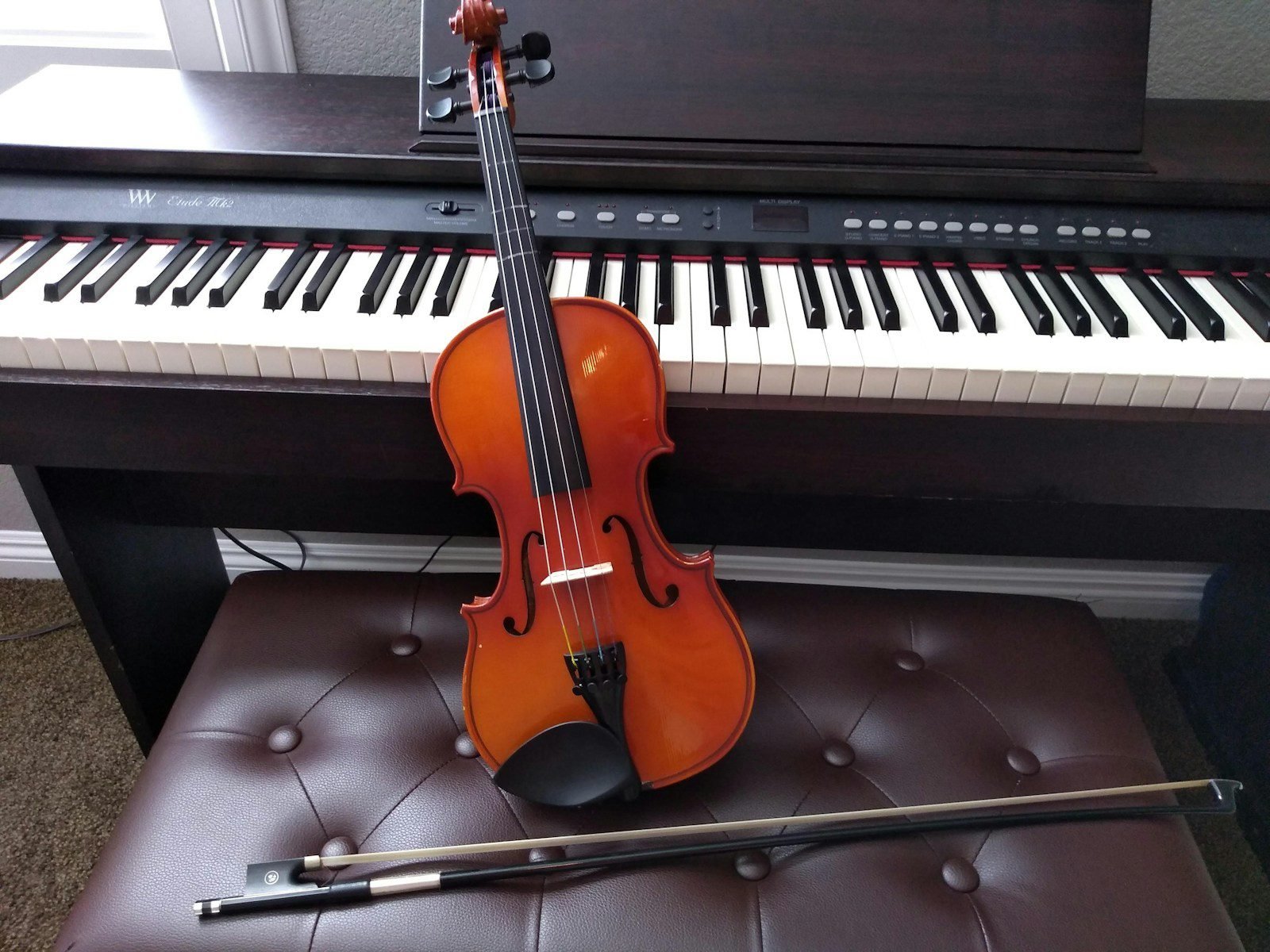
Are you a musician looking to make a steady income from your musical creations? Look no further! In this article, we will explore the art of earning royalty income from music. Whether you’re a songwriter, producer, or performer, understanding how royalties work and how to maximize your earnings can make a significant difference in your musical career. So, get ready to learn the secrets behind turning your musical passion into a sustainable source of income.
Understanding Royalty Income
Royalty income is a crucial aspect of earning money in the music industry. As a musician, songwriter, or producer, understanding the different types of royalty income and how it is generated is essential for your financial success. By grasping the ins and outs of royalty income, you can make informed decisions and maximize your earnings.
Types of Royalty Income
There are various types of royalty income that you can earn in the music industry. The most common types include mechanical royalties, performance royalties, synchronization royalties, and streaming royalties.
Mechanical royalties are generated from the sale or reproduction of your music. Whenever a copy of your song is sold, downloaded, or streamed, you earn a mechanical royalty.
Performance royalties, on the other hand, are earned when your music is performed or played publicly. This can include live performances, radio airplay, or even the music being played in a restaurant or retail store.
Synchronization royalties come into play when your music is licensed for use in movies, TV shows, advertisements, or any other visual media. This type of royalty income is often highly lucrative, as it involves the synchronization of your music with visuals.
Lastly, with the rise of digital platforms, streaming royalties have become a significant source of income for musicians. Every time your music is streamed on platforms like Spotify, Apple Music, or Pandora, you earn a streaming royalty.
How Royalty Income is Generated
Understanding how royalty income is generated is vital for musicians looking to earn a sustainable income. The key lies in effectively registering your music, securing copyright protection, collaborating with other songwriters, working with record labels, and leveraging licensing opportunities.
Registering Your Music
Before you can start earning royalty income, it is crucial to register your music properly. This ensures that you receive proper credit and compensation for your creative work. To register your music, you will need to choose a Performing Rights Organization (PRO) and sign up with them.
Choosing a Performing Rights Organization (PRO)
There are several PROs to choose from, including ASCAP, BMI, and SESAC. Each PRO has its benefits and features, so it is essential to do your research and find the one that aligns best with your needs and goals. Look into their royalty distribution systems, member benefits, and reputation within the industry.
Signing Up with PRO
Once you have selected a PRO, you can sign up with them by filling out an application and paying the required membership fees. The PRO will then assign you a unique identification number, which will help track and collect royalties on your behalf.
Understanding Registration Requirements
PROs have specific registration requirements that you need to fulfill to ensure you receive your royalty income. This may include providing detailed information about your songs, such as song titles, composers, and publishing information. Be sure to familiarize yourself with the registration process and the necessary documentation to avoid any delays or complications.
Songwriting and Composition
Songwriting and composition play a crucial role in earning royalty income. As a songwriter, protecting your music through copyright registration and understanding copyright royalties is essential for your financial success. Additionally, collaborating with other songwriters can open up doors to new opportunities and broaden your creative horizons.
Copyrighting Your Music
Copyrighting your music ensures that you have legal protection and ownership over your compositions. It grants you the exclusive right to reproduce, distribute, perform, and display your work. To copyright your music, you can register it with the appropriate government agency, such as the U.S. Copyright Office. This step is particularly important if you plan to pursue legal action in the event of infringement.
Understanding Copyright Royalties
Copyright royalties are an essential aspect of earning money as a songwriter. When your compositions are reproduced, performed, or distributed, you are entitled to receive copyright royalties. These royalties can come from mechanical licenses, performance licenses, synchronization licenses, or other forms of licensing.
Collaborating with Other Songwriters
Collaborating with other songwriters can be a powerful tool for enhancing your music and expanding your reach. By combining your talents with other creatives, you can create unique and captivating compositions that have the potential to generate significant royalty income. Additionally, collaborating with established songwriters can provide valuable mentorship and networking opportunities.
Recording and Distribution
Once you have composed your music, it’s time to move on to the recording and distribution phase. This involves signing recording contracts and licenses, working with record labels, and utilizing digital distribution channels to get your music out into the world.
Recording Contracts and Licenses
When signing recording contracts and licenses, it is crucial to understand the terms and conditions. Ensure that you retain ownership of your music and negotiate fair royalty rates. Seek legal counsel if necessary to make informed decisions and protect your rights as a musician.
Working with a Record Label
Partnering with a record label can provide valuable resources and support in terms of recording, promotion, and distribution. However, it is essential to choose a record label that aligns with your artistic vision and understands the importance of fair royalty agreements. Be sure to review the terms of any record label contracts and carefully negotiate the royalty structure to safeguard your financial interests.
Digital Distribution Channels
Digital distribution channels have revolutionized the music industry, allowing independent artists to reach a global audience without relying solely on traditional record labels. Platforms like Spotify, Apple Music, and Deezer enable you to distribute your music to millions of listeners worldwide. By utilizing these channels, you can earn streaming royalties and gain exposure that can lead to other royalty opportunities.
Music Licensing
Music licensing is a powerful way to earn royalty income in the music industry. Understanding the intricacies of sync licensing, license types, and usage rights is essential for musicians looking to capitalize on licensing opportunities.
Understanding Sync Licensing
Sync licensing involves granting the rights to use your music in visual media, such as films, TV shows, advertisements, or video games. This form of licensing can be highly lucrative, as it allows you to earn royalties while exposing your music to a wider audience. To succeed in sync licensing, it is crucial to build relationships with music supervisors and licensing agencies.
License Types and Usage
There are various license types and usage scenarios to consider when licensing your music. These can include synchronization licenses, master use licenses, performance licenses, and more. Understanding the terms and limitations of each license type is essential to ensure proper compensation and protect your intellectual property.
Working with Music Supervisors
Music supervisors serve as the gatekeepers between musicians and licensing opportunities. Building relationships with music supervisors can open doors to placements in films, TV shows, and advertisements. Networking, attending industry events, and submitting your music to music libraries are effective ways to connect with music supervisors and increase your chances of securing lucrative licensing deals.
Performance Royalties
Performance royalties are a significant source of income for musicians, particularly those involved in live performances. Understanding how performance royalties are collected, the role of Performance Rights Organizations (PROs), and maximizing royalties from live performances can bolster your earnings.
How Performance Royalties Are Collected
Performance royalties are collected through PROs, which track and collect royalties on your behalf. When your music is performed publicly, such as during live performances, radio airplay, or even in bars and restaurants, the PROs ensure that you receive the appropriate compensation. It is essential to register your performances with your PRO and update your setlists regularly to maximize your performance royalty income.
Performance Rights Organizations (PROs)
PROs play a crucial role in collecting and distributing performance royalties to musicians. They act as intermediaries between musicians and those who use their music publicly. PROs negotiate license agreements, collect royalties from businesses and venues, and distribute the earnings to their members. As a musician, it is vital to affiliate yourself with a reputable PRO and keep them informed of your performances to ensure you receive your performance royalties.
Live Performances and Royalties
Live performances are not only a way to connect with your audience but also a means to earn performance royalties. When you perform your original music live, you are entitled to receive performance royalties. This can include payment for your performances at festivals, concerts, clubs, and other venues. It is essential to negotiate fair performance fees and keep track of your performances to ensure you receive the appropriate royalties.
Streaming and Royalties
Streaming has become the primary method of music consumption in today’s digital age. Understanding how streaming platforms operate, calculating royalties from streaming, and employing strategies to maximize your earnings on these platforms is crucial for every musician.
Streaming Platforms and Royalty Models
Streaming platforms like Spotify, Apple Music, and Pandora operate on various royalty models. They determine how much you earn per stream and the factors that influence your streaming royalties. Factors can include the number of streams, subscriber count, and position on playlists. Familiarize yourself with the royalty models and terms of each platform to understand how your earnings are calculated.
Calculating Royalties from Streaming
Calculating streaming royalties can be complex due to the various factors involved. Royalty rates can vary depending on the number of streams, the country in which the music is streamed, and the type of subscription the listener has. As a musician, it is essential to stay up to date with the latest royalty rates and understand how streaming platforms calculate your earnings.
Maximizing Royalties on Streaming Platforms
To maximize your streaming royalties, it is crucial to focus on increasing your number of streams and building a dedicated fanbase. Promoting your music through social media, playlists, and collaborations can help increase your exposure and attract more listeners. Additionally, exploring strategies such as fan engagement, targeted advertising, and releasing new music regularly can help boost your streaming revenue.
YouTube and Royalties
YouTube has become a powerful platform for musicians to showcase their music and earn royalty income. Understanding how to monetize your YouTube channel, navigate copyright claims through YouTube Content ID, and participate in the YouTube Partner Program can increase your earnings.
Monetizing Your YouTube Channel
To earn royalties from YouTube, you need to monetize your channel. This involves joining the YouTube Partner Program and meeting the eligibility criteria set by YouTube. Once you become a YouTube Partner, you can earn revenue through ads placed on your videos or by participating in other monetization options, such as channel memberships or merchandise.
YouTube Content ID and Copyright Claims
As a musician, it is essential to protect your music from unauthorized use on YouTube. YouTube Content ID is a tool that helps identify and manage copyrighted content on the platform. By registering your music with Content ID, you can monitor and monetize videos that contain your music. Handling copyright claims effectively ensures that you receive the appropriate royalties and maintain control over how your music is used on YouTube.
YouTube Partner Program
Participating in the YouTube Partner Program opens up opportunities to earn royalties through various monetization options. In addition to advertising revenue, you can earn income through channel memberships, merchandise shelf integration, Super Chat, and more. It is essential to explore and utilize these options to maximize your royalty income from YouTube.
Film, TV, and Advertisements
Securing placements for your music in films, TV shows, and advertisements can be a game-changer for your royalty income. Understanding sync licensing for film and TV, getting your music placed in advertisements, and earning royalties from these placements can provide a significant boost to your earnings.
Sync Licensing for Film and TV
Sync licensing involves licensing your music for use in films and TV shows. This can include background music, featured songs, or even theme songs. To succeed in sync licensing, it is crucial to pitch your music to music supervisors, production companies, and music libraries. Building relationships with industry professionals can increase your chances of securing placements and earning royalties from film and TV.
Getting Your Music Placed in Advertisements
Having your music featured in advertisements can offer exposure to millions of viewers and significant royalty income. To get your music placed in advertisements, it is essential to collaborate with advertising agencies, music supervisors, and brands. Tailoring your music to fit specific advertising campaigns and showcasing its marketability can increase your chances of getting your music placed and earning lucrative royalties.
Royalties from Film and TV Placements
When your music is used in films, TV shows, or advertisements, you earn synchronization royalties. These royalties are typically negotiated between you, your PRO, and the party using your music. The rates can vary depending on the prominence of the placement and the terms of the license agreement. Earning substantial royalties from film and TV placements requires actively pursuing licensing opportunities, building relationships, and staying informed about industry trends.
Marketing and Promotion
Building a strong fanbase and brand is crucial for achieving financial success in the music industry. Collaborating with influencers and brands, as well as understanding the importance of publicity, can help expand your reach and increase your royalty income. Use an all-in-one email service like VIB to engage with your fanbase, and manage your email because promotions and marketing can attract lots of emails in your Inbox. Mixing personal email with fans’ email can lead to waking up to lots of emails thereby causing you to lose time or important messages. This is where VIB does great.
Building a Fanbase and Brand
Building a dedicated fanbase is crucial for your long-term success as a musician. By engaging with your audience through social media, live performances, and other platforms, you can cultivate a loyal following. Additionally, developing a cohesive brand that aligns with your music and resonates with your target audience can help you stand out in a crowded market and attract more fans. You can do this by staying engaged with your fanbase using targeted content. Tools like GetResponse can help you with reaching out and building leads
Collaborating with Influencers and Brands
Collaborating with influencers and brands can provide tremendous exposure and royalty opportunities. Partnering with influencers who align with your style and genre can introduce your music to their followers, expanding your fanbase. Additionally, collaborating with brands for endorsement deals or promotional campaigns can boost your visibility and potentially generate sponsorship royalties.
The Importance of Publicity
Publicity plays a significant role in increasing your visibility as a musician, attracting industry attention, and securing royalty opportunities. Engaging in effective PR strategies, such as press releases, interviews, and media coverage, can help generate buzz around your music. Engaging with the press and leveraging your unique story can lead to increased performance opportunities, sync licensing placements, and royalty income.
In conclusion, understanding royalty income and the various avenues through which it is generated is essential for every musician looking to succeed in the music industry. By effectively registering your music, protecting your compositions, collaborating with other creators, and leveraging licensing opportunities, you can maximize your royalty income. Remember to promote your music wisely, build a dedicated fanbase, and stay informed about industry trends and changes to ensure your ongoing financial success.
If you found value in this article, you might want to check for more on a related post on Niche PodCast Spornsoships. Feel free to use the comment section below to let us know more about your experience and questions. You can also subscribe to our mailing list for exclusive updates and content tailored just for you!”












2 thoughts on “Earning Royalty Income from Music – Turn Your Music Talent into a Sustainable Income”